Fortuna Foods supplies fresh garlic, ginger, turmeric, bay leaves, curry leaves, lemongrass, lime leaves, herbs, while increasingly moving into value-adding products like chimichurri and salsa verde.
“Our strength and aim is to have fresh, quality product available for Woolworths at competitive prices all year around. We are an exclusive supplier to Woolworths and we're focused on retail, with the balance of the product supplied directly into the catering industry,” says Richardt Piek, CEO of Fortuna Foods, based in Gauteng.
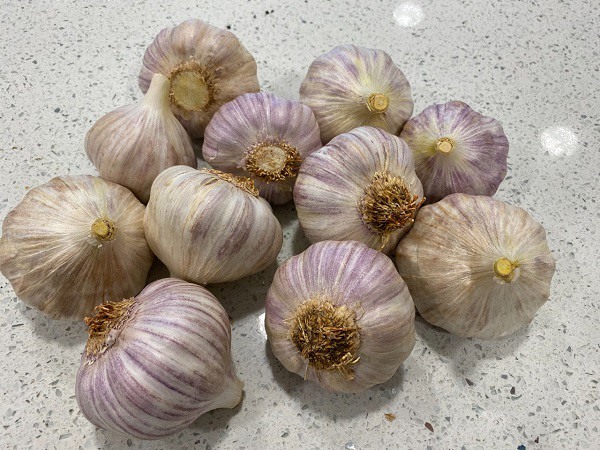 South African garlic produced for Fortuna Foods by their exclusive growers receiving specialist agronomy advice (photos supplied by Fortuna Foods)
South African garlic produced for Fortuna Foods by their exclusive growers receiving specialist agronomy advice (photos supplied by Fortuna Foods)
“We coordinate a network of farms, primarily exclusive suppliers. Our strategy is to support and continuously grow the percentage of local supply and in time be less reliant on imports. This year, due to the excessively wet early summer our growers have fallen significantly short on deliveries. Our farmers could only supply 10% of the class 1 garlic they would’ve otherwise been able to. As of March, we will supplement local garlic with imported garlic until the first local harvests from Limpopo starts in October.”
Garlic production has been growing from strength to strength
Richardt has travelled the world to study garlic and even flew in Colin Boswell from The Garlic Farm on the UK's Isle of Wight to present a seminar on garlic production to their farmers. “Garlic is an exciting crop because you get many different varieties, something that is well understood abroad, with many countries like France dedicating a day to garlic in a town call Florence. This excitement is yet to be discovered in South Africa, hence our passion and commitment as Fortuna Foods with the local growers and varietal development.”
There’s a net deficit of garlic in South Africa.
“As garlic specialists, we identified the opportunity to collaborate with Dewald Smit, a specialist agriculturalist who has experience overseas in garlic production, to guide more than a dozen garlic growers. The main objective with his expertise will be to elevate South African growers to a standard that could match and supersede international quality standards.”
Richardt adds: “Five years ago when we started these garlic conferences with our farmers, I began to realise that a lot of the garlic advice given to farmers was based on adapted onion programmes. Garlic had been getting smaller and smaller over the past twenty years, and we’d been having increasing problems procuring a sufficient amount of garlic throughout the year. We have grown from strength to strength with the agriculturalists' advice, Colin Boswell’s guidance and improved farming techniques.”
Spring rain reduced class 1 garlic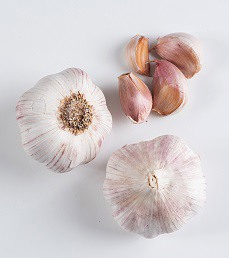 Harvest time (progressing from Limpopo down to the Karoo, from September to December) is a high-risk period.
Harvest time (progressing from Limpopo down to the Karoo, from September to December) is a high-risk period.
“The Karoo had between 150mm and 200mm of rain during August, September, October last year, and as a result decreased the yields with quality problems,” Dewald says.
He continues that the Karoo is a good area for garlic as it achieves sufficient cold units, but the challenge there is the salinity of the soil and water, requiring the use of specialist products which would otherwise not be needed if one were growing, for example, in the Southern Free State with its high potassium soils.
Dewald points out that sandy soil doesn’t work for garlic; it has to be a loam or a light clay, a heavier soil than onions require.
Fortuna Foods wants to celebrate garlic in all its variety
“Our retail partner values supporting local suppliers and they are passionate to grow small scale growers. With garlic being a high Rand value niche crop, the small scale growers only farm between 1 to 5ha. We have an extensive programme to support and upskill these farmers and to expand the farmers, focusing on sustainability but maximizing the farming hectares to its best arable potential.”
Their retail partner supports them with varietal development, allowing farmers to explore what works best for their areas, yields and quality.
“Our mindset is not only limited by the 'pure Chinese white' but rather to celebrate local produce, allowing customers to explore the newness of different colours and flavours within the garlic category. At our preparation facility we can support farmers marketing with their entire crop including class 3 garlic. Having this added benefit, it allows prepared suppliers within the FMCG market to procure their fresh garlic from us.”
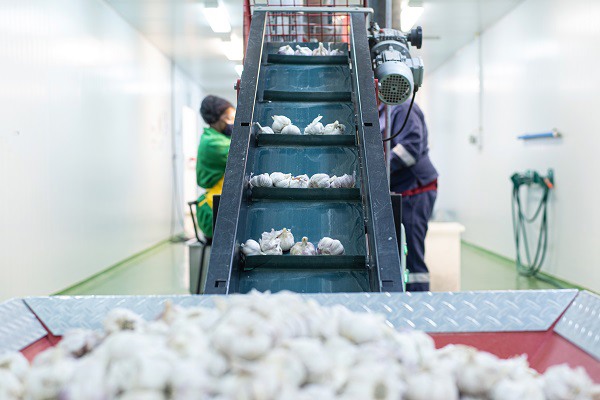 Peeling garlic, for retail and the catering industry
Peeling garlic, for retail and the catering industry
Garlic storage facility for year-round local supply
Fortuna Foods has set up a storage facility with specialized cooling rooms to have a year-round supply offering of garlic, mitigating the periods where local crop is not available. Garlic is a crop that is planted once a year and harvested over a 10 week period.
The storage facility is the only of its kind in the country and it has taken them ten years to refine. They can now store their growers’ garlic for 13 months, and Richardt notes that once delivered, the growers bear no more of the storage and shrinkage risks.
“If you don’t do post-harvest handling right, you could reduce all of your class 1 garlic to class 3,” Dewald says. “We’d really like local garlic to compete with imported garlic. There is currently anti-dumping duty on top of import tariffs on Chinese garlic, to bring it in line with other imported garlic, but Chinese garlic is still less expensive.”
Garlic from Spain is imported under a free trade agreement.
“We’ve invested in local growers by paying above-average prices for garlic over the past 8 years to stimulate garlic production and to grow the category,” Richardt maintains.
“We’re hoping that after everything we’ve been putting into the production and agronomy of garlic, farmers will soon be in a position to say: We are confident specialized garlic growers, we can scale beyond the needs of a single retailer, and we’re going to push quality garlic into the local markets cheaper than Spanish garlic. I see no reason why South African garlic cannot compete with Spanish garlic on pricing and quality.”
Disease takes its toll on South African ginger
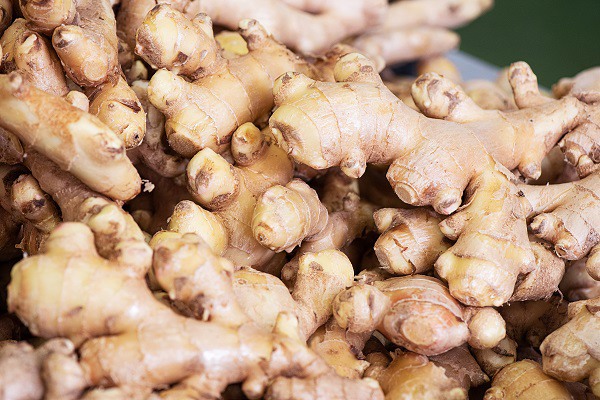
“Ginger - now that is a challenge,” Richardt remarks. “Ginger volumes have drastically declined over the past few years due to soilborne bacterial disease. Due to the local suppliers being under pressure with disease free soil in the ideal growing region, in 2021 we were forced to explore imports both for quality and demand purposes. Our retail partner prefers local ginger, however, based on local supply deficit with quality, we have imported from Thailand as a top up to what is available.
Surprisingly enough, Richardt says, turmeric didn’t show the same growth as ginger or garlic during Covid, as they’d expected.
Chillies are a minor line for Fortuna Foods that they would like to grow with increased supply to sauce manufacturers.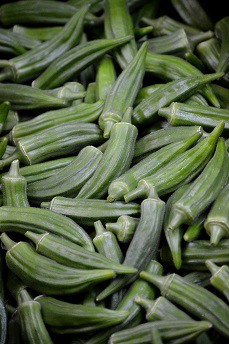 They also supply okra (right), but it is a category that needs to be repositioned.
They also supply okra (right), but it is a category that needs to be repositioned.
“We started off growing okra under greenhouse conditions to produce perfect, blemish-free okra, but it turned out that consumers don’t see the value in perfect-looking okra at that price point. We will now move okra production to openland, which will bring down the price considerably.”
Okra doesn’t travel well, Dewald adds, it’s a very time-sensitive crop and therefore needs to be produced close to market in Gauteng or North West Province.
“We’re very excited about the complementary nature of our products,” Richardt concludes.
For more information: Richardt Piek
Richardt Piek
Fortuna Foods
Tel: +27 12 140 1110
Email: richardt@fortunafoods.co.za
dewald@fortunafoods.co.za
https://fortunafoods.co.za/
